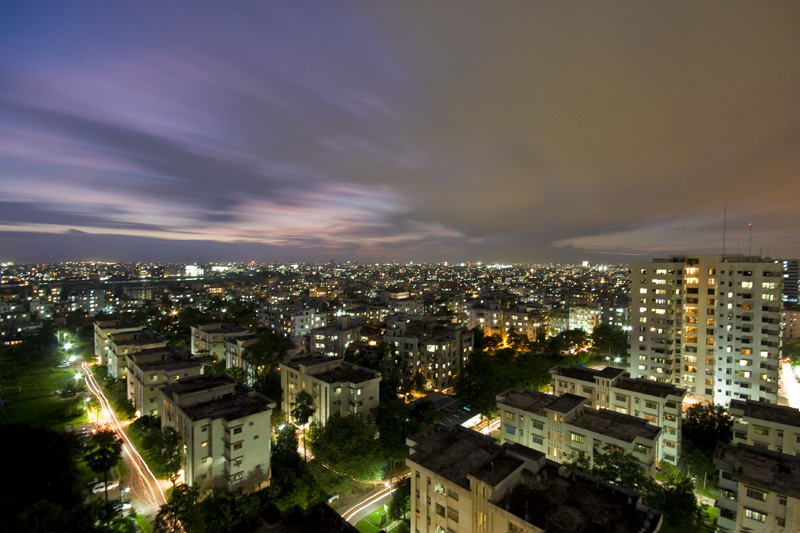
With a population of around 160 million and an area of approximately 147,500 sq. k.m., real estate is a significant concern for Bangladesh. The urban growth rate of 3.25% per annum (1)—result of both population growth and rural-urban migration—also adds considerable weight to that concern.
As people flock toward the cities, it becomes increasingly challenging to provide shelter and housing facilities for all of them.
The real estate industry in Bangladesh, now in its fourth decade, emerged after the liberation war. The industry comprises mainly of formal private participants (corporate developers) and informal participants (individual developers).
Real Estate and Housing Association of Bangladesh (REHAB), a trade organization for real estate developers, currently accounts for 1073 active member-companies.
The real estate sector had experienced a series of ups and downs in the last few decades. In the period following 2004, the sector entertained many new entrepreneurs and organizations and received a huge supply of investments. But inadequate infrastructure and socio-political scenario made the industry take a downturn in 2006.
It experienced another boom when a new government was formed in 2009. But the boost was short-lived and much less powerful than the previous one. The industry is seeing plummeting investment since then.
Against such a backdrop, a few digital startups, popularly known as Real Estate Tech startups, are trying to bring a change in the scene. Addressing the issues that are slowing down the industry’s growth, these companies are easing the process of doing business both for property developers and people who are seeking to buy or rent housing. One such initiative is bproperty (stylized as bproperty.com). are trying to bring a change in the scene. Addressing the issues that are slowing down the industry’s growth, these companies are easing the process of doing business both for property developers and people who are seeking to buy housing. One such initiative is Bproperty (stylized as bproperty.com).
A regional chapter of Emerging Markets Property Group, Bproperty started its operation marketplace in 2015. At present, it is one of the largest real estate market place in the country. It provides an online platform that connects individual or corporate sellers with property buyers.
Bproperty is different from other companies in the industry in the sense that it works with both sellers/landlords and buyers/tenants to help expedite real estate transactions rather than developing or constructing properties. In the words of CEO Mark Nosworthy, Bproperty’s “job is to make the process of buying or selling a home, or renting a home to be efficient and done with ease, allowing all parties to trust each other.”
In addition to a strong network of buyers and sellers, Bproperty provides a hosts of other services to its users as well. For all parties involved, it offers financial guidance and assumes responsibility to fulfill the necessary legal requirements related to the transactions.
At present Bproperty has 80,000 verified properties across the country in its clientele. As an aggregator, it puts extra emphasis on data and how digital technology can be used to keep them accurate and always up-to-date. According to Mr. Nosworthy, all data, images, and content on the website are uniquely verified by the company. They employ rigorous quality checking procedure for physical assets as well as for clients on both ends, thus ensuring a foolproof client management system.
But it’s not all roses for Bproperty. There are critical challenges facing them ahead. For instance, Bangladesh’s internet penetration rate is still hovering around 40 million, among whom only 35% access the internet on a regular basis. Moreover, property renting or buying is a high involvement activity which many people don’t find comfortable doing using an online platform.
On the top of that, demographically, the people who deal with property and similar high value things are relatively old people who are not always fond of digital technologies. As a consequence, the tendency among consumers to make property transactions online is yet to reach a satisfactory level.
There are other market-related issues, such as—extremely concentrated urbanization, shortage of land, skyrocketing land prices, etc. Much of the real estate sector has been built in and around the capital, particularly in areas like Uttara, Gulshan, Banani, and Dhanmondi, where the affluent and upper middle class populace of the country resides.
Moreover, in the last 10 years, the average land value has increased four times than the previous period, making it tough for the middle-income households to purchase property without borrowed funds.
The real estate sector is an important pillar of the country’s economy. Apart from its standalone contribution to the economic development, it also racks up demand for other ancillary industries, such as—steel, cement, paint, cable, and so on—which altogether makes up around 12% of the national GDP. Such a potential sector must not be neglected if we are to ensure the basic right of housing for everyone.
Initiatives like Bproperty are capable of ensuring a new wave of change in the industry. But the government must lend a helping hand in this regard by addressing the policy issues and improving the market condition as soon as possible. Otherwise, it would require a Herculean effort on our part to house the rapidly growing urban populace which is set to become 34% of the total population by 2025.
References
1. Islam, N., 2012. Urbanization and Urban Governance in Bangladesh. Annual Global Development Conference on “Urbanization & Development: Delving Deeper into the Nexus”. Budapest.

